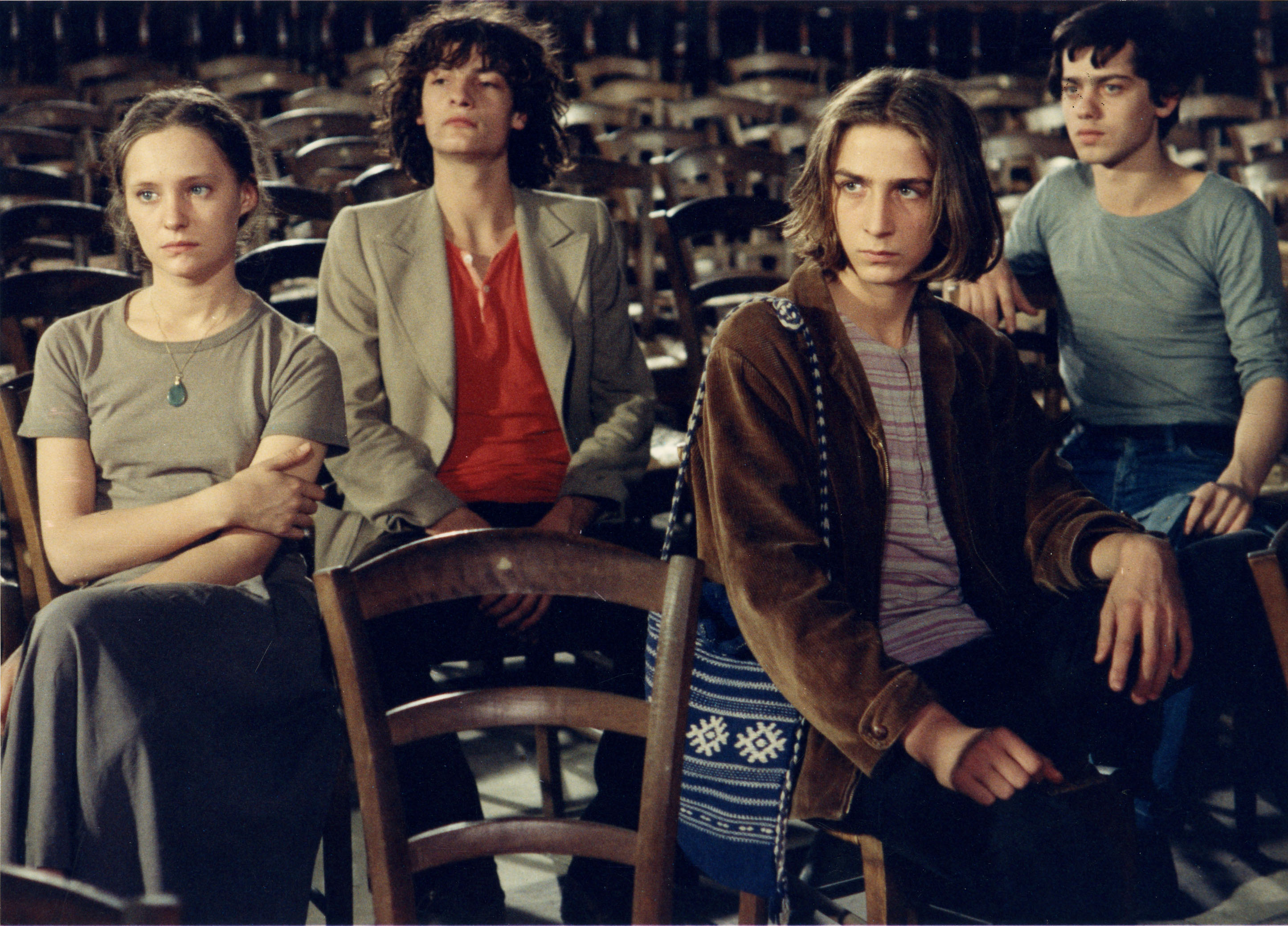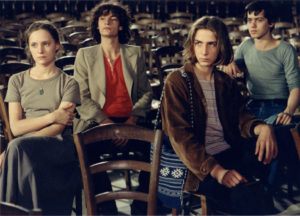I have recently seen again the late Robert Bresson’s penultimate film “Le diable probablement” (The Devil Probably) and today, September 25th, being his birthday, I thought I would send out my reflections upon it. I have written previously of Monsieur Bresson, whom I consider the greatest of film-makers, at https://theamericanculture.org/appreciating-robert-bresson-seemingly-simple-but-with-mystery-at-the-heart-of-it/
The 1977 film, which won the Grand Jury Prize at the Berlin International Film Festival, opens with newspaper stories of the death of a student, Charles (Antoine Monnier), in a Paris cemetery, first called a suicide and later a possible murder. The film then becomes one long retrospective chronicling the six months leading up to the death.
There are two women in Charles’ life. Alberte (Tina Irissari) leaves home to live with Charles even though she confesses to their mutual friend Michel (Henri de Maublanc), an environmental activist, that she does not know why she is doing so and actually loves him, Michel. The second woman is the beautiful Edwige (Laetitia Carcano). All four of these people know one another and seem to be on good terms. While Michel loves Alberte, this does not interfere with him having friendly relations with Charles.
But the film is not ultimately a story of romantic entanglements; it is, rather, a tale of a confused and alienated Charles, disgusted with what he regards as the vulgarity and triviality of life, looking for a reason to live. He ultimately finds no such reason in religion, art, politics, romantic love, casual coition, or psychology. Monsieur Bresson’s essentialist technique,wherein unadorned images interact with each other and also with natural sounds, creates a profound film of restrained intensity, a poem of despair.
What struck me for the first time in my latest viewing of The Devil Probably was how its final scenes echo the final scenes of perhaps the only film of Monsieur Bresson with an unambiguously happy ending, the 1956 “Un condamne a mort s’est echappe” (A Man Escaped). In that film, based upon a true story of a French prisoner of war’s escape from a German prison during the Second World War, two men climb over a wall escaping from a prison, a place of execution, of death. In The Devil Probably, two men climb over a wall into a cemetery, a place of death, a place where one of them will die. The very last scene of A Man Escaped has two men running away from the camera into the distance and finally disappearing as they experience a great liberation. In the Devil Probably, one man similarly runs away also to escape punishment, but there is nothing liberating or exalting about it. Truly a profound film, a poem of despair.


